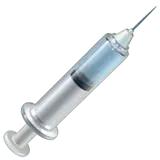Black knot
black knot of prunus


CLASSIFICATION
Fungi, Ascomycetes, Pezizomycotina, Dothideomycetes, Venturiaceae, Apiosporina
ABOUT
Black knot is an infectious disease caused by the fungus Apiosporina morbosa. It affects trees from the genus Prunus (such as apricots, plums, and cherry trees). Infected trees develop swollen black galls on branches and trunks. Many Prunus trees tolerate black knot disease, but some of them develop more serious symptoms such as wilting and dying of the branches.
How to treat?
 Biological
BiologicalPrune out all the black knot galls from branches in late winter or early spring. Burn or bury the infected branches.
 Chemical
ChemicalIf necessary, apply a fungicide. Fungicide treatment is not very effective and should be done in spring.
If necessary, apply fungicide containing thiophanate-methyl (GHS07: Harmful, GHS08: Health hazard, GHS09: Environmental hazard).
If necessary, apply fungicide containing captan (GHS05: Corrosive, GHS06: Toxic, GHS07: Harmful, GHS08: Health hazard, GHS09: Environmental hazard).
 Disease prevention
Disease preventionUse resistant species and cultivars as well as healthy, certified seeds and seedlings.
Prune the plant. Prune before spring and inspect for infection.
Avoid planting new plants in the area where the disease previously appeared.
Disinfect tools, infected flower pots, and hands to avoid disease transmission.